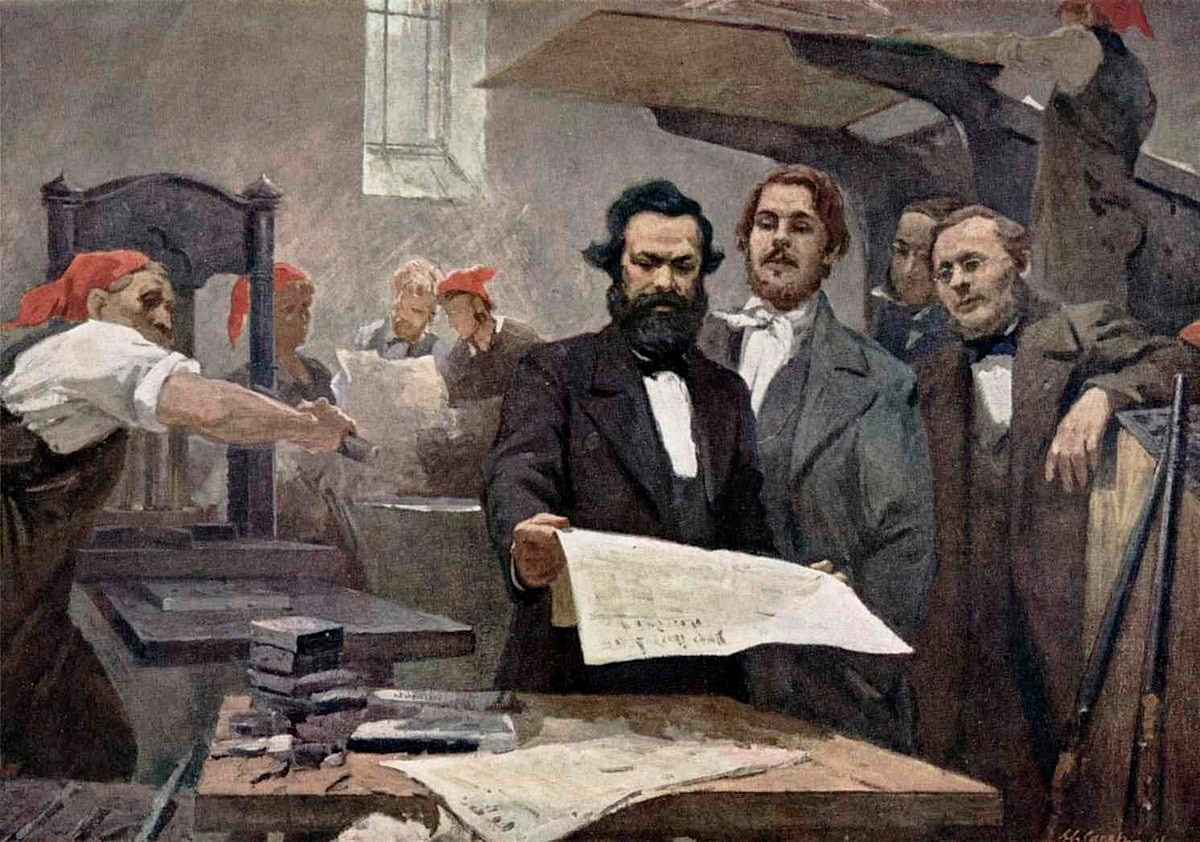ProleWiki:Main page/Featured/Marxism: Difference between revisions
More languages
More actions
m (New Featured for Lenin) Tag: Visual edit |
m (Forte moved page ProleWiki:Main page/Featured/6 to ProleWiki:Main page/Featured/Marxism: Easier indexing) |
||
| (6 intermediate revisions by 2 users not shown) | |||
| Line 1: | Line 1: | ||
[[File: | [[File:Marx and Engels 1848.png|left|frameless|275x275px]] | ||
''' | '''Marxism''' is a scientific worldview and school of thought first developed by [[Marx|Karl Marx]] and [[Engels|Friedrich Engels]]. The theoretical framework developed by Marx and Engels was a critical synthesis of [[French Republic|French]] [[utopian socialism]], [[United Kingdom of Great Britain and Northern Ireland|British]] [[political economy]] and German classical [[philosophy]]. Since the 19th century, Marxism has then developed into several different currents of thought, such as [[Marxism-Leninism]], [[Maoism]] or [[Mao Zedong Thought|Mao Zedong thought]], [[Ho Chi Minh Thought|Ho Chi Minh thought]] and many other schools of thought. The Marxist scientific worldview has developed through the study of social and historical development based on the [[Historical materialism|historical materialist]] method. | ||
[[Marx]] and [[Engels]] first developed [[scientific socialism]] through their struggle against the utopian socialists, and reached new grounds with the publication of [[Capital, vol. I]]. Marxism was elevated in the 20th century with the practice of the [[dictatorship of the proletariat]], which was the [[Leninism|Leninist]] contribution to Marxism. {{Align|right|[[Marxism-Leninism|''Read further...'']]}} | |||
Latest revision as of 01:53, 18 January 2023

Marxism is a scientific worldview and school of thought first developed by Karl Marx and Friedrich Engels. The theoretical framework developed by Marx and Engels was a critical synthesis of French utopian socialism, British political economy and German classical philosophy. Since the 19th century, Marxism has then developed into several different currents of thought, such as Marxism-Leninism, Maoism or Mao Zedong thought, Ho Chi Minh thought and many other schools of thought. The Marxist scientific worldview has developed through the study of social and historical development based on the historical materialist method.
Marx and Engels first developed scientific socialism through their struggle against the utopian socialists, and reached new grounds with the publication of Capital, vol. I. Marxism was elevated in the 20th century with the practice of the dictatorship of the proletariat, which was the Leninist contribution to Marxism.
